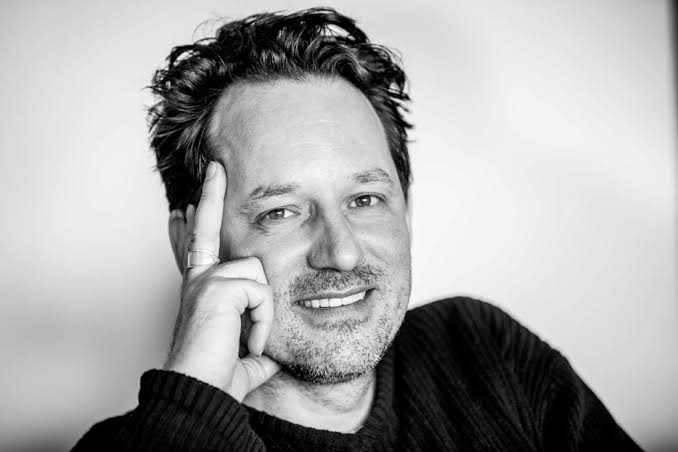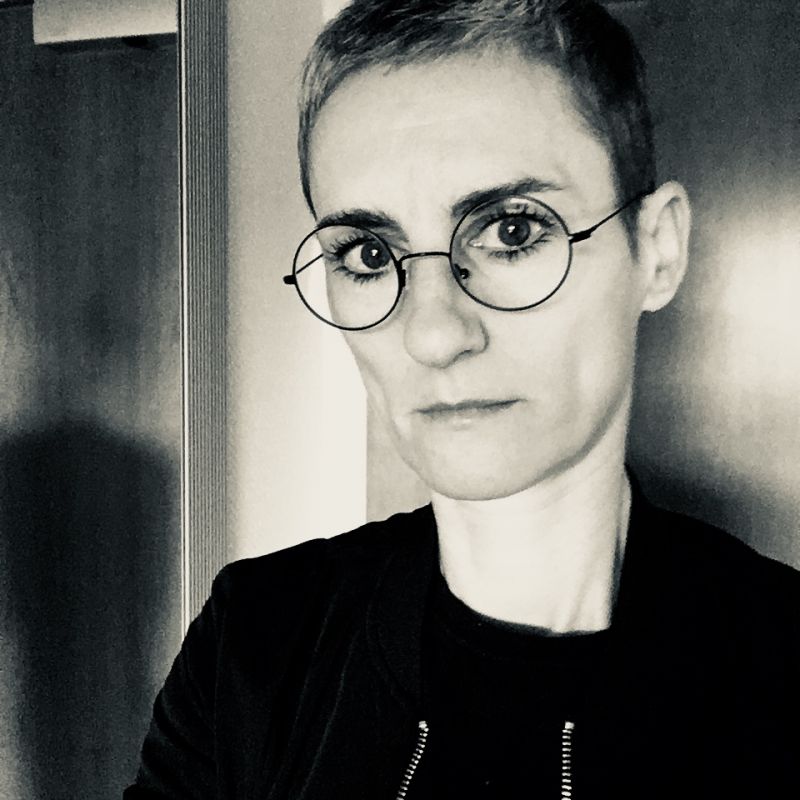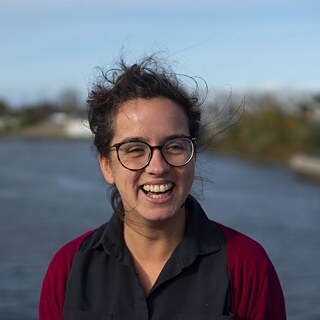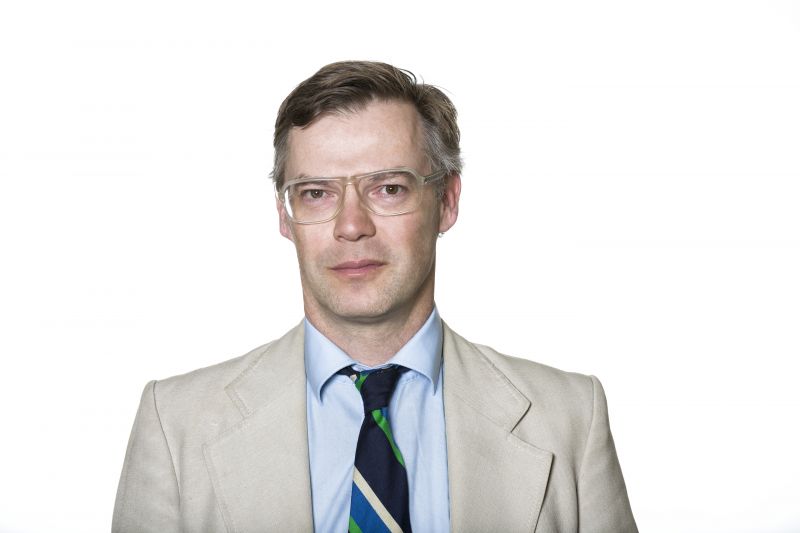Brauchen wir Grenzen, um frei zu sein?!
Do We Need Boundaries to be Free?!
Do, 06.06. 17:00
Festival Center Post Playground
»Berlin war ein Leuchtturm der künstlerischen Freiheit, Gaza hat alles verändert«, titelt die New York Times. Seit dem Überfall der Hamas auf Israel am 7. Oktober und dem Krieg in Gaza ist die Kunst-und Kulturwelt gespalten. Ausstellungen werden wegen Antisemitismusvorwürfen abgesagt, Redner:innen ausgeladen, Symposien unterbrochen und manchen die Einreise nach Deutschland verweigert. Einige verstummen, aus Angst, etwas vermeintlich Falsches zu sagen, andere fordern aktiv zum Boykott deutscher Kulturveranstaltungen auf. Jüdinnen:Juden wie auch Palästinenser:innen werden vermehrt unter Generalverdacht gestellt. Wie gehen Kulturakteur:innen damit um? Brauchen wir Begrenzungen, Richtlinien, Klauseln für die Kunst? Welche Rolle nimmt die Politik hier ein? Der Hamburger Kultursenator Carsten Brosda sagt sinngemäß: Kunstfreiheit bedeutet, dass der Staat von Künstler:innen kein inhaltliches Bekenntnis verlangt. Was bedeutet zum Beispiel eine Antisemitismusklausel im Umkehrschluss für die Institutionen? Wie schützen wir uns vor rechtem Einfluss auf die Kultur?
Featuring: Wolf Iro, Katrin Mundt und Nina Reiprich Moderation: Christoph Twickel
Diese Veranstaltung ist in deutscher Sprache.
»Berlin Was a Beacon of Artistic Freedom. Gaza Changed Everything.«, according to a New York Times headline. Since Hamas' attack on Israel on 7 October 2023 and the war in Gaza, the world of art and culture is divided. Exhibitions are cancelled due to charges of anti-Semitism, speakers are uninvited, symposia are interrupted and individuals are denied entry to Germany. Some fall silent, for fear of saying something supposedly wrong, while others actively call for a boycott of German cultural events. Both Jews and Palestinians are increasingly being placed under general suspicion. How do cultural actors deal with this? Do we need limitations, guidelines, clauses for art? What role do the political class and sphere assume here? Hamburg's Senator for Culture Carsten Brosda has said, roughly paraphrased, that artistic freedom means that the state does not require artists to make loyalty pledges in terms of content. What does an anti-Semitism clause, for instance, mean conversely for institutions? How do we protect ourselves from a right-wing influence on culture?
Featuring: Wolf Iro, Katrin Mundt and Nina Reiprich Moderation: Christoph Twickel
This event is in German.
 Wolf Iro
Wolf Iro
Wolf Iro studierte Vergleichende Literaturwissenschaften in Cambridge und Slawistik in Oxford und Moskau. Seine Promotion legte er an der LMU München über den russisch-jüdischen Schriftsteller Isaak Babel ab. Seit 2004 Tätigkeit beim Goethe-Institut. Er arbeitete von 2009 bis Anfang 2014 als Leiter der regionalen Programmarbeit in Moskau, anschließend als Institutsleiter in Israel und leitet inzwischen die Kulturabteilung in München. 2019 veröffentlichte er den politische Essay »Nach Israel kommen«.
Wolf Iro studied comparative literature in Cambridge and Slavic studies in Oxford and Moscow. He completed his doctorate at the LMU Munich on the Russian-Jewish writer Isaak Babel. He has worked at the Goethe-Institut since 2004. From 2009 to early 2014, he worked as head of regional program work in Moscow, then as director of the institute in Israel and is now head of the cultural department in Munich. In 2019, he published the political essay »Nach Israel kommen«.
 Katrin Mundt
Katrin Mundt
Katrin Mundt ist Künstlerische Leiterin des EMAF in Osnabrück. Sie hat als Kuratorin für den Württembergischen Kunstverein Stuttgart und den HMKV, Dortmund, gearbeitet und war viele Jahre für internationale Festivals tätig. Darunter in der Auswahlkommission der Duisburger Filmwoche sowie als Kuratorin für die Videonale in Bonn, goEast in Wiesbaden und 25FPS in Zagreb. Sie ist regelmäßig mit Seminaren, Workshops und Vorträgen an Hochschulen zu Gast, u.a. der Netherlands Film Academy in Amsterdam, Goldsmiths, University of London, LUCA School of Arts, Gent und der Kunsthochschule für Medien Köln. Zudem schreibt zu Film und medialen Künsten, insbesondere ihren Schnittstellen mit dokumentarischen und performativen Praxen.
Katrin Mundt is artistic director of the EMAF in Osnabrück. She has worked as a curator for the Württembergischer Kunstverein Stuttgart and HMKV, Dortmund, and has also worked for international festivals for many years. She has been a member of the selection committee of the Duisburger Filmwoche as well as a curator for the Videonale in Bonn, goEast in Wiesbaden and 25FPS in Zagreb. She regularly gives seminars, workshops and lectures at universities, including the Netherlands Film Academy in Amsterdam, Goldsmiths, University of London, LUCA School of Arts, Ghent, and the Academy of Media Arts Cologne. She also writes on film and media arts, particularly on their points of intersection with documentary and performative practices.
 Nina Reiprich
Nina Reiprich
Nina Reiprich ist Projektentwicklerin mit einem Fokus auf postmigrantische, rassismuskritische und diversitätsorientierte Perspektiven. Nach dem Studium der Kultur- und Sozialanthropologie arbeitete sie in verschiedenen Funktionen für das Projekt New Hamburg. Seit 2021 ist sie Co-Geschäftsführung von Studio Marshmallow und Teil der künstlerischen Leitung des fluctoplasma Festivals. In dieser Rolle beschäftigt sie sich mit der Frage, wie sie sich als weiß positionierte Person für eine antirassistische Gesellschaft einsetzen kann.
Nina Reiprich is a project developer with a focus on post-migrant, racism-critical and diversity-oriented perspectives. After studying cultural and social anthropology, she worked in various functions for the New Hamburg project. Since 2021 she is co-managing director of Studio Marshmallow and part of the artistic direction of the fluctoplasma festival. In this role, she deals with the question of how she, as a white person, can advocate for an anti-racist society.
 Christoph Twickel
Christoph Twickel
Christoph Twickel ist freier Autor vor allem für DIE ZEIT und den NDR, schreibt über Stadtentwicklung, Gentrifizierung und Immobilienskandale, aber auch über Kultur. Mit dem in der ZEIT erschienen Artikel „Danke, Rote Flora!“ schrieb er fünf Woche nach dem Hamas-Massaker einen vielbeachteten Kommentar zu der Frage, wie die deutsche Linke zu Israel und Palästina steht.
Christoph Twickel is a freelance author, primarily for DIE ZEIT and NDR, and writes about urban development, gentrification and real estate scandals, but also about culture. In the article »Danke, Rote Flora!«, published in DIE ZEIT five weeks after the Hamas massacre, he wrote a much-noticed commentary on the German left's stance on Israel and Palestine.




